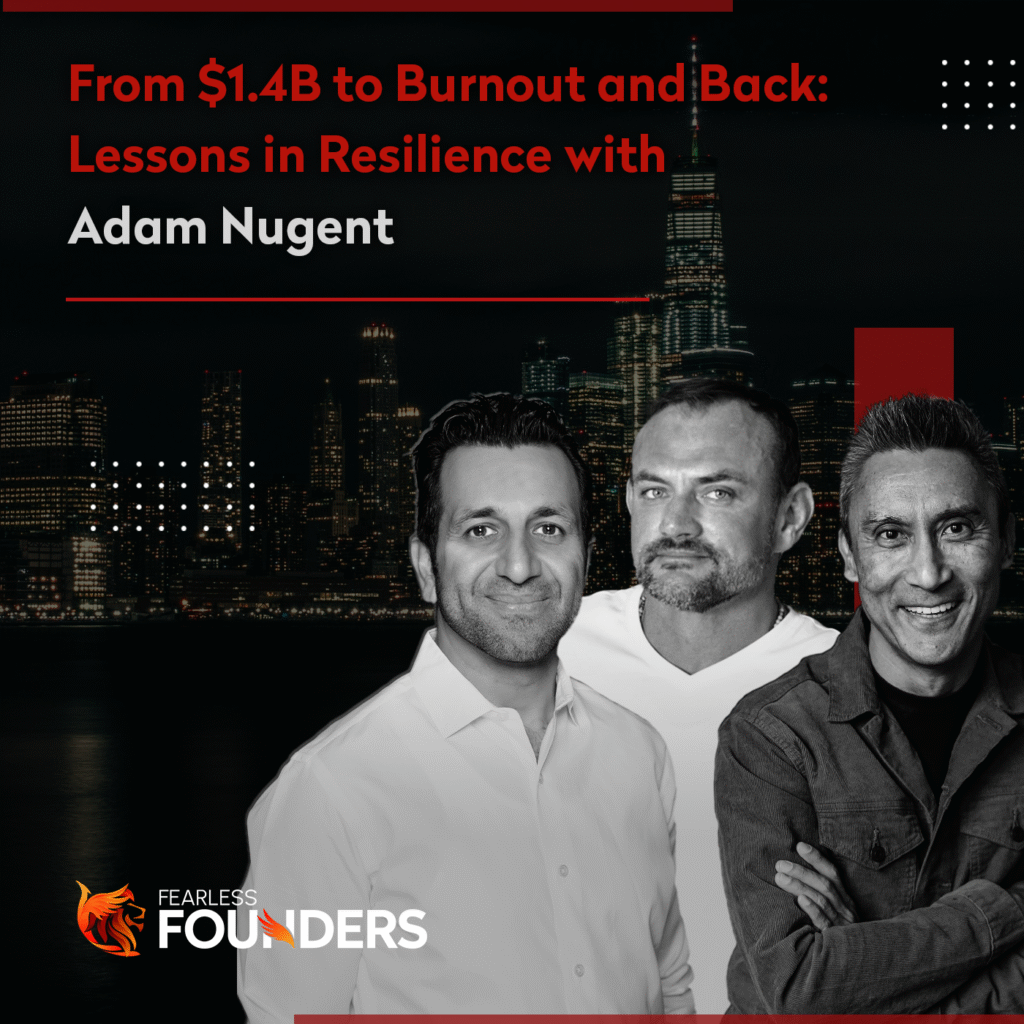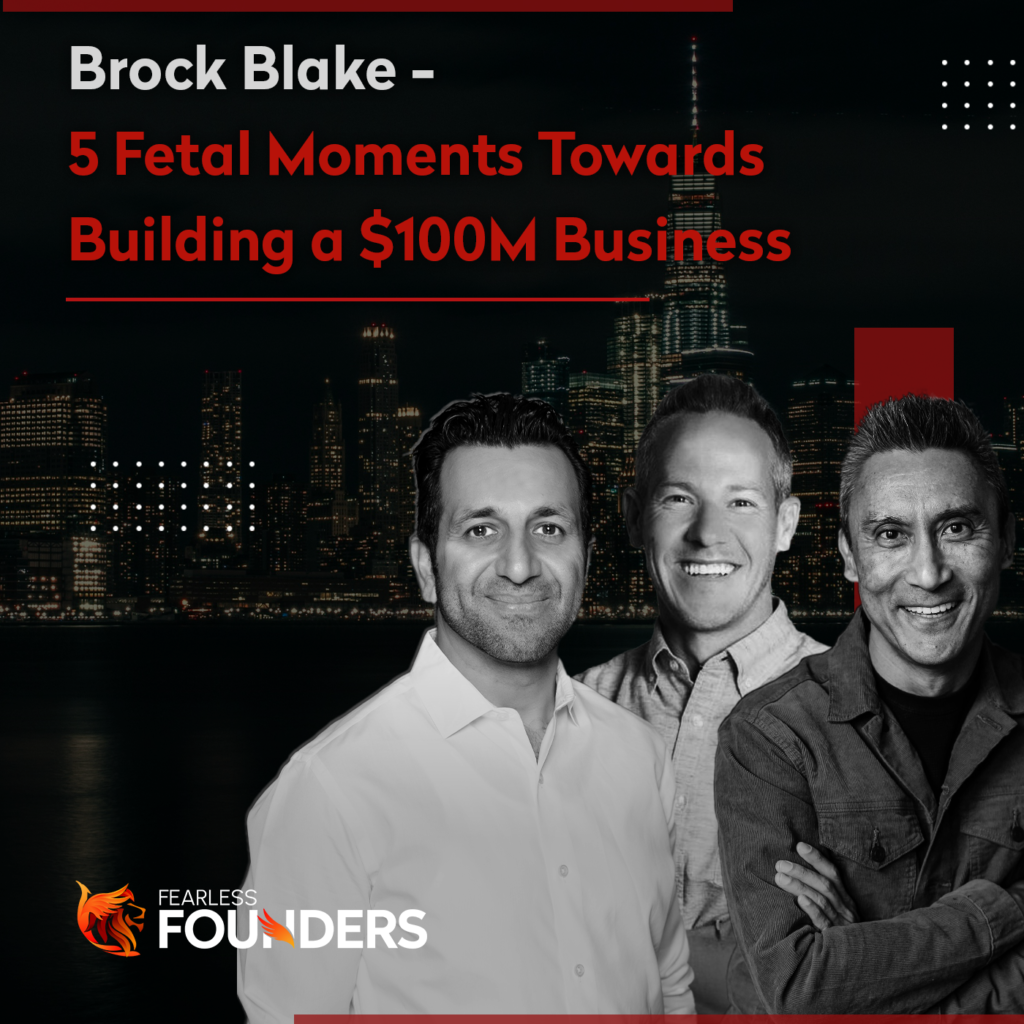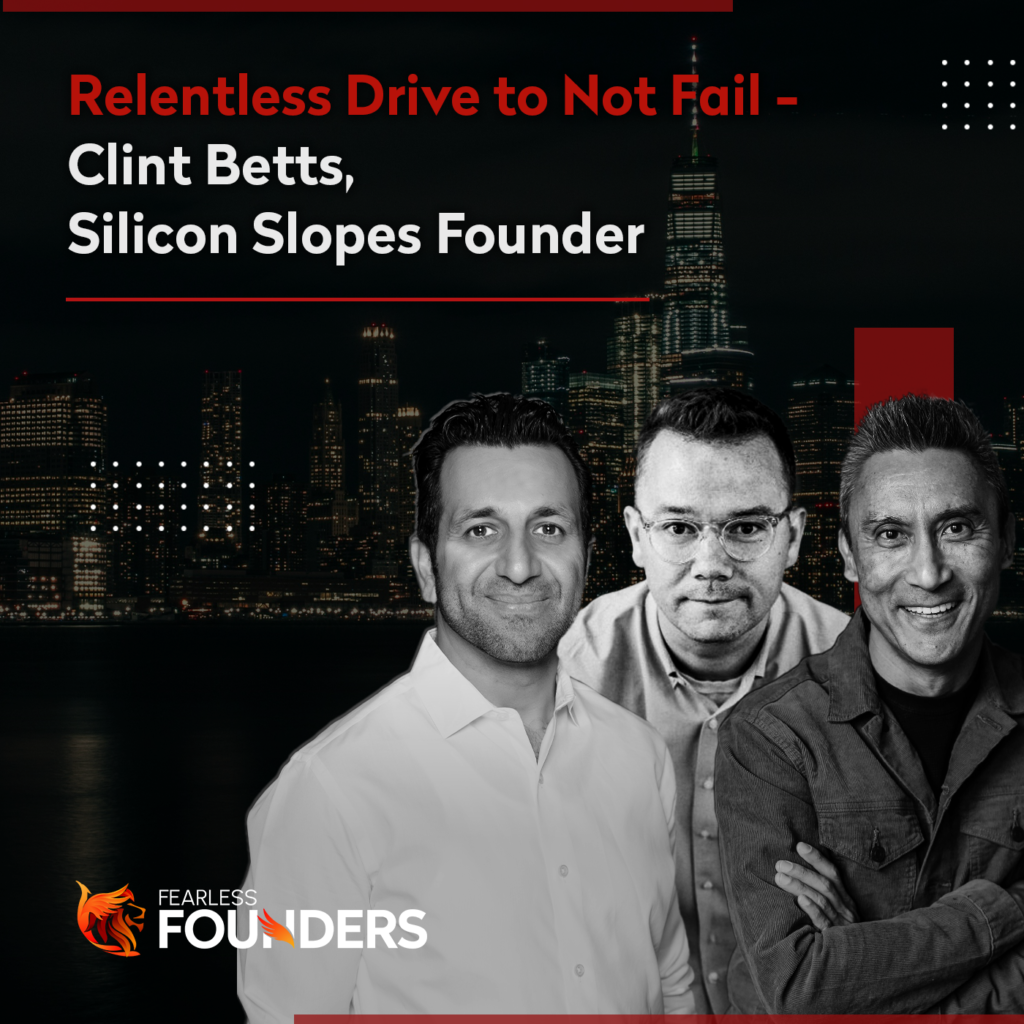Venture Capital Secrets: Insights from Scott Frazier on Fearless Founders
Venture capital (VC) plays a pivotal role in the startup ecosystem, providing crucial funding and guidance to help businesses grow. However, accessing and managing venture capital can be a daunting task for many founders. The podcast Fearless Founders, hosted by Ike and Benoy, offers invaluable advice on venture capital through real-life examples from experienced investors and entrepreneurs. In one episode, they interview Scott Frazier of the Frazier Group, a seasoned VC with investments in over 150 ventures. In this blog, we dive into key insights from that episode, focusing on venture capital strategies that can make or break a startup’s success.
1. Picking the Right Companies: It’s All About the Founder
One of the key takeaways from Scott Frazier’s venture capital journey is the importance of the founder when choosing investments. He shared how early in his career, he invested heavily in a startup based on a recommendation from a trusted professor. The student, Josh James, went on to build Domo, a highly successful tech company. Frazier emphasized that investing in the founder’s character and abilities can be as critical as evaluating the product or market potential. This lesson is relevant today, as investors seek founders who demonstrate resilience, vision, and adaptability.
Real-Life Example:
Josh James, the founder of Domo, was highlighted as a brilliant entrepreneur whose charisma and drive led to successful ventures, even in a crowded tech landscape. Founders who inspire confidence can often drive success even through market challenges.
2. Navigating Failures: The 80/20 Rule
Frazier admitted that approximately 80% of the companies he invested in during the early years failed. However, he stresses that this is part of the venture capital game. As an investor, the goal is to balance the risk by putting more money into the businesses that are succeeding and less into those struggling. He credits his success to continuing to invest in the ventures that thrive and letting go of those that falter.
Real-Life Example:
The Frazier Group’s strategy is to double down on successful companies like CentralLogic and Omniture, which showed consistent revenue growth, while pulling back from ventures that could not maintain a competitive edge. This pragmatic approach to failure helps ensure long-term returns despite early losses.
3. Pivoting for Success: When to Change Course
Startups often pivot to survive. Frazier highlighted the importance of being flexible and not getting too attached to a single business idea. He recounted the story of a company that moved from selling discounted eyeglasses to contact lenses and later into the LASIK surgery market. By continuously evolving, the company found its profitable niche, turning its initial struggles into success.
Real-Life Example:
This kind of pivot is common in venture-backed companies. An example is Instagram, which started as a location-based app called Burbn. After struggling to gain traction, the founders pivoted to focus on photo sharing, which eventually led to Instagram’s massive success and acquisition by Facebook.
4. The Power of Partnerships: Don’t Go It Alone
One of Frazier’s main pieces of advice for first-time founders is to find a great partner. Many successful businesses, including those he has invested in, were led by pairs or teams, not single entrepreneurs. A strong partner complements the founder’s strengths, helping manage the emotional and operational challenges of growing a business.
Real-Life Example:
The founding duo of Google, Larry Page and Sergey Brin, is a classic example. Their partnership allowed them to leverage each other’s strengths—Page’s visionary thinking and Brin’s technical expertise—which were instrumental in Google’s growth into a global tech giant.
5. Building a Product with Staying Power: Focus on the Long Game
Many startups make the mistake of focusing on short-term gains rather than building a product that can stand the test of time. Frazier warns that founders should invest heavily in product development, especially in industries like SaaS (Software as a Service), where the best product tends to capture most of the market. He advises founders to avoid cutting corners on product quality and innovation, even if it means slower initial growth.
Real-Life Example:
Salesforce, one of the leading SaaS companies, succeeded because of its relentless focus on improving and iterating its product over time. Rather than opting for short-term profits, Salesforce’s commitment to customer feedback and product innovation helped it dominate the CRM market.
Venture capital can be a powerful tool for growing a business, but it comes with challenges. The insights shared in Fearless Founders, hosted by Ike and Benoy, offer a roadmap for navigating these challenges, from finding the right investors to knowing when to pivot. By learning from seasoned investors like Scott Frazier, founders can better prepare themselves for the ups and downs of the startup journey.
Whether you’re a first-time founder or an experienced entrepreneur, understanding these key principles of venture capital can greatly enhance your chances of success in a competitive market.
Join Benoy and Ike on the Fearless Founders podcast, where professionalism meets fun, and every episode is a step towards realizing your entrepreneurial dreams. Tune in on YouTube and Spotify, and visit their website for access to premium services that elevate your business journey. This is your opportunity to learn, grow, and thrive in the dynamic world of entrepreneurship.

Adam opens up about the collapse of his business, the emotional aftermath, and his journey through rock bottom toward personal and professional reinvention. From the pitfalls of chasing external validation to the power of rebuilding your identity, this conversation is packed with hard-won wisdom for every entrepreneur navigating risk, growth, and purpose.

In Episode 29 of Fearless Founders, hosts Benoy Tamang and Ike Kavas welcomed Abby Martin, HR expert and President of Amplēo HR, for a deep dive into what truly drives scalable, people-first growth in startups.

In this episode 28 of Fearless Founders, Brock Blake, co-founder and CEO of Lendio, shares the unfiltered reality behind building a $100M business. He walks us through five pivotal “fetal position” moments—those gut-wrenching lows that tested his resolve, leadership, and belief in the mission.

In Episode 27 of Fearless Founders, we sit down with Fengmin Gong, a pioneering technologist and four-time exited founder, known for his instrumental roles in building companies like Palo Alto Networks and CipherOptics.

In this episode of Fearless Founders, Jeremy Glauser, a three-time exit entrepreneur, shares his journey of building and scaling multiple businesses. He opens up about the challenges of entrepreneurship, from navigating market timing to the emotional toll of setbacks.

In Episode 25 of Fearless Founders, we sit down with Tom Turner, a visionary leader in cybersecurity and a seasoned entrepreneur with multiple successful exits. With a career spanning decades in the tech industry, Tom shares his insights on building and scaling startups, aligning sales and marketing for growth, and the critical role of leadership in fast-moving industries.

In Episode 24 of Fearless Founders, Peter Harris, Managing Director of University Growth Fund, shares his remarkable journey from real estate and micro-franchising in Ghana to leading a venture fund in Utah. With years of experience evaluating startups and raising capital, Peter offers invaluable insights into when to raise funds, navigating investor relationships, and building successful businesses.

In this episode 23 of Fearless Founders, our guest, Clint Betts is a key figure in the startup and tech community, best known for founding Silicon Slopes and Kokomo. He has played a major role in fostering entrepreneurship, connecting leaders, and shaping Utah’s tech landscape.

In this episode 22 of Fearless Founders, Jeremy Docken is a seasoned entrepreneur and founder of Calderas, a healthcare technology company. With a background in accounting and forensic finance at Arthur Andersen and KPMG, he transitioned into the tech and pharmaceutical space, building innovative solutions.

In Episode 21 of Fearless Founders, Brandon Bliss shares his incredible journey from finance graduate to achieving five successful company exits. With over 20 years of experience, he unpacks strategies for elevating business growth, the value of mentorship, and the power of aligning your purpose with your business venture. Learn more how his eye-opening life story and practical lessons can inspire you to create a lasting impact on your team and unlock growth for everyone. Don’t miss this episode packed with actionable takeaways!